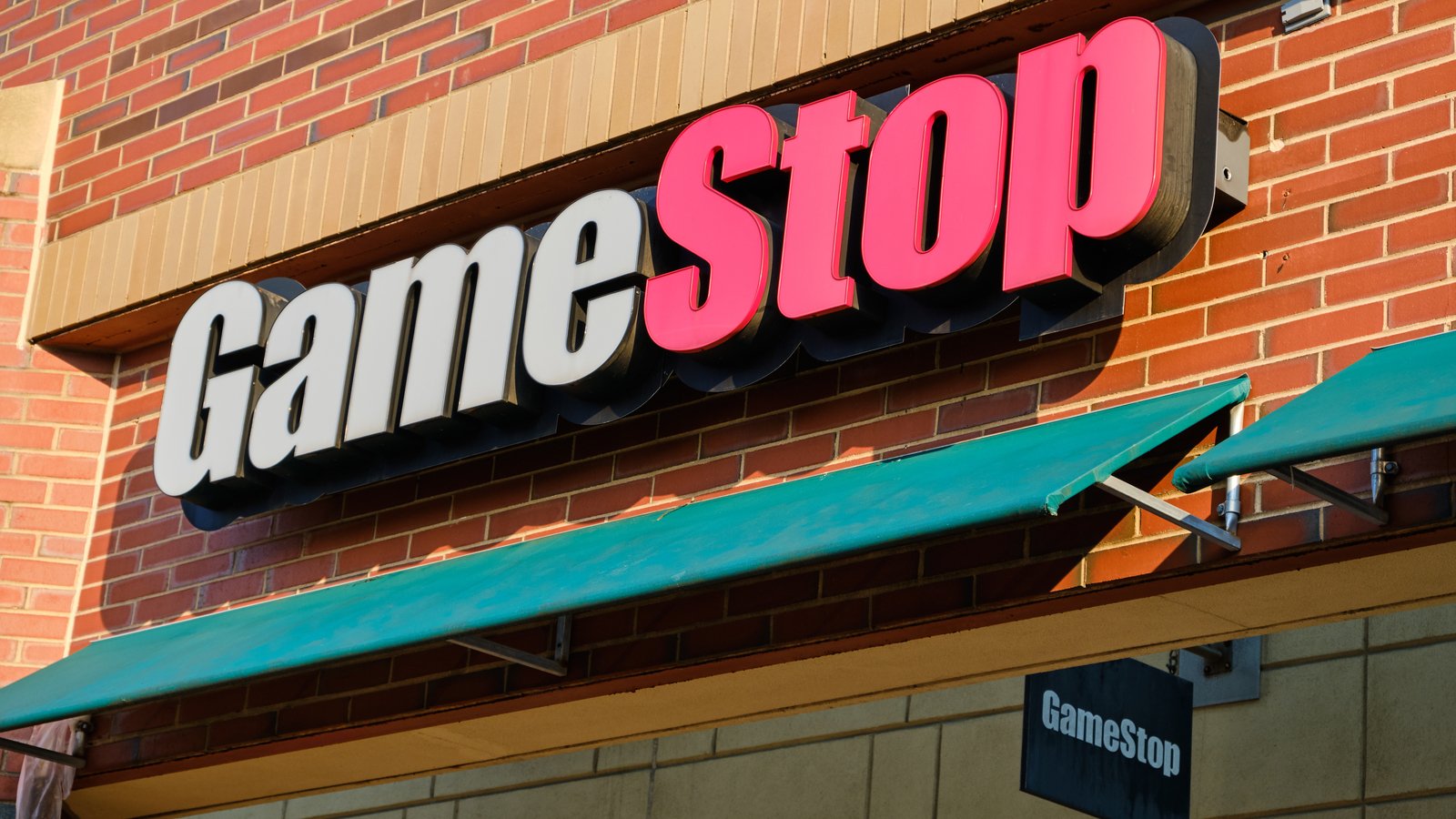GameStop (NYSE:GME) stock has been one of 2021’s most incredible investing stories. The initial short squeeze was incredible to watch. Few market analysts could have ever imagined that a struggling mall retailer like GameStop could see its shares surge thousands of percent.

That surge, in turn, saved the company. GameStop raised cash with a new equity offering, thus taking care of its debt and giving it a runway to transition its business model. Now, the company has time to try to find a way to shrink its legacy brick and mortar business and build a digital model instead.
It was surprising enough that GameStop got this far. Then the second surprise hit. GME stock has stayed at an elevated level for months now.
Despite GameStop still having poor financial results, investors are valuing the company as if its digital transformation is already complete. This, in turn, has created a huge gap between the fundamental value of GameStop’s business and the value that speculators are assigning it. Increasingly, social media is turning to more and more unsubstantiated theories to try to justify GME stock’s high price.
Dark Pool Theories
The GameStop short squeeze community is still running strong. On July 23, for example, the hashtag #DarkPoolAbuse was trending on Twitter in Canada and Germany among other countries. Dark pools are off-exchange areas where institutional traders such as mutual funds can buy or sell large blocks of stock to each other.
Dark pools are legal, and exist so that funds can transact large quantities of stock without significantly affecting the price, as would happen if you posted a large buy or sell order on a public exchange. These pools also have lower fees, which saves money for ordinary investors that own the mutual funds and other investments that operate in dark pools.
A group of social media users tried to claim that dark pools are nefarious. In theory, GME stock has been held down by activity on the dark pools. In practice, that makes little sense. The point of dark pools is to buy and sell stock without causing a major impact on the share price. If someone wanted to manipulate a share price, it’d be much more effective to post a large sell order on a public exchange, where people would see the large selling interest and interpret it as an ominous sign.
Long story short, dark pools don’t generally have a large impact on prices either way. If anything, they may improve price discovery, as per this paper from an MIT professor. In any case, dark pool activity is unlikely to be a major factor in the value of GME stock.
Fundamental Developments Are Limited
Why is Reddit so worked up about dark pools and other arcane trading theories? In brief, it’s because there’s nothing better to talk about. GameStop’s proposed evolution into a leading digital gaming company will take years to pull off, if it can be achieved at all.
And to the extent that there is news, it’s mostly bad. For example, Netflix (NASDAQ:NFLX) recently announced that it is entering the digital gaming arena. Netflix will offer games to its existing subscribers at no additional cost. Reportedly, it will focus on mobile games first, but in time, it may encroach on the higher-end gaming market.
In news specific to GameStop, Reuters reported that the company will invest more in its stores. This came after GameStop investor Ryan Cohen visited the stores undercover and found them not up to par.
It seems that GameStop will work on fixing the basics, such as improving inventory levels and customer service. Customers had long complained about these things back when GME stock was at a low price and the company seemed on the verge of bankruptcy. So it makes sense to spruce up the stores now that the company’s financial situation is much healthier.
Still, improving the stores is unlikely to alter GameStop’s long-term trajectory too much. If the stock is to justify its sky-high share price, GameStop needs a digital-first future. So far, it’s unclear what exactly the company’s new management will do to make this a reality. Its much-hyped announcement about non-fungible tokens (NFTs) has led to little so far, for example. Go to the GameStop NFT website and see for yourself.
GME Stock Verdict
Give it to social media: The meme traders kept GME stock elevated far longer than most people would have thought possible.
At some point, however, GME stock is likely to sink. Fundamentally, the company simply isn’t worth anything close to its $13 billion market capitalization based on its current operations. And there is little sign that the company’s evolution is going fast enough to justify the share price either.
Of course, GameStop has defied gravity for many months. So it’s well within the realm of possibility that GME stock will continue flying high. That said, the short squeeze played out months ago. The current theories on Reddit about dark pools, Citadel, ladder attacks and the like are highly speculative, to say the least.
With little more than far-fetched rumors to keep GME stock going, the most likely direction for the share price is to the downside.
On the date of publication, Ian Bezek did not have (either directly or indirectly) any positions in the securities mentioned in this article. The opinions expressed in this article are those of the writer, subject to the InvestorPlace.com Publishing Guidelines.
Ian Bezek has written more than 1,000 articles for InvestorPlace.com and Seeking Alpha. He also worked as a Junior Analyst for Kerrisdale Capital, a $300 million New York City-based hedge fund. You can reach him on Twitter at @irbezek.
